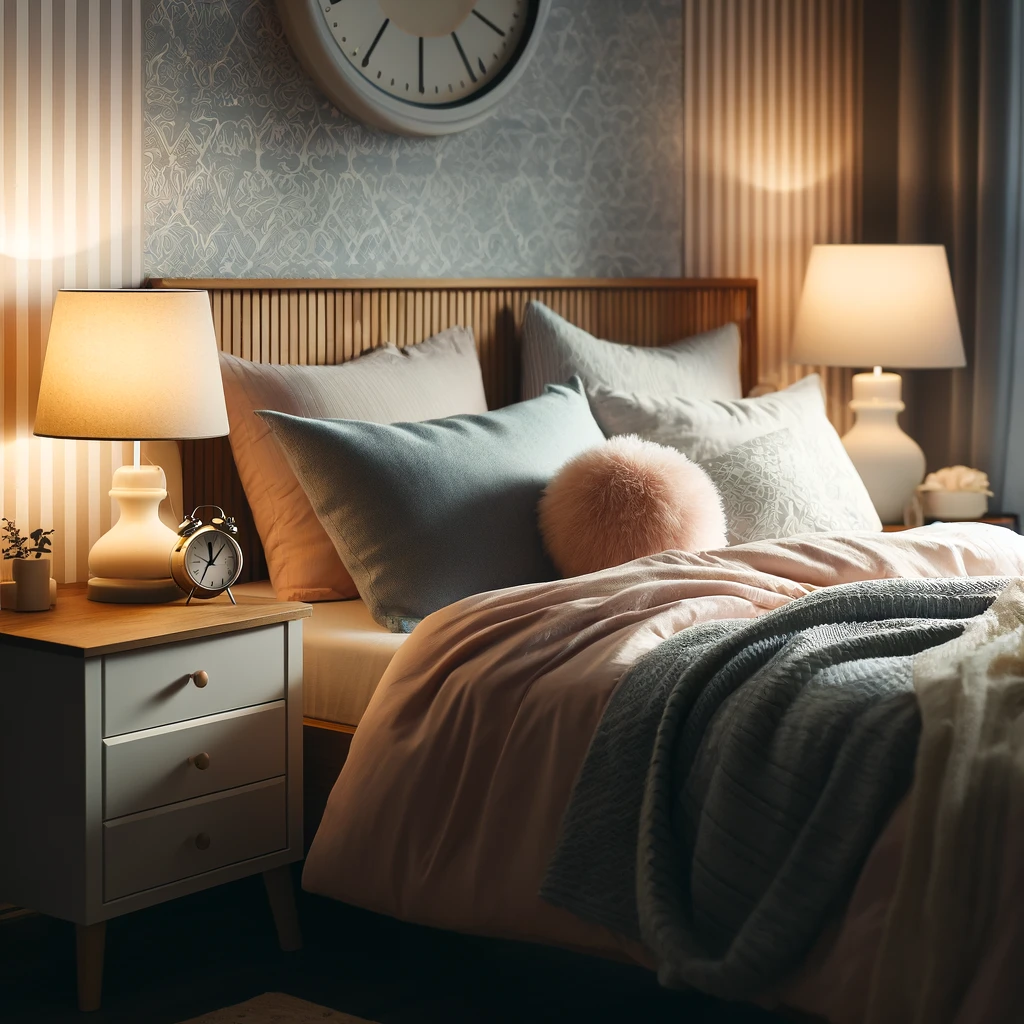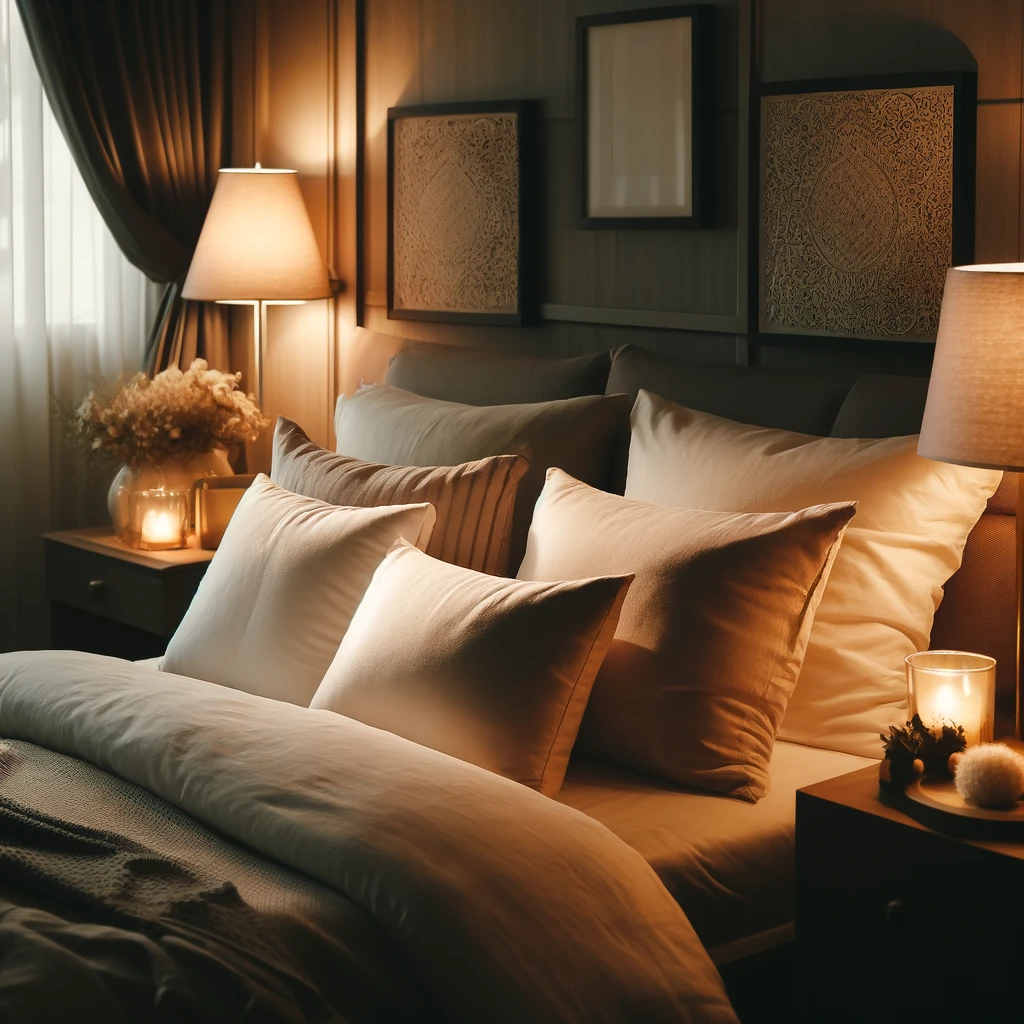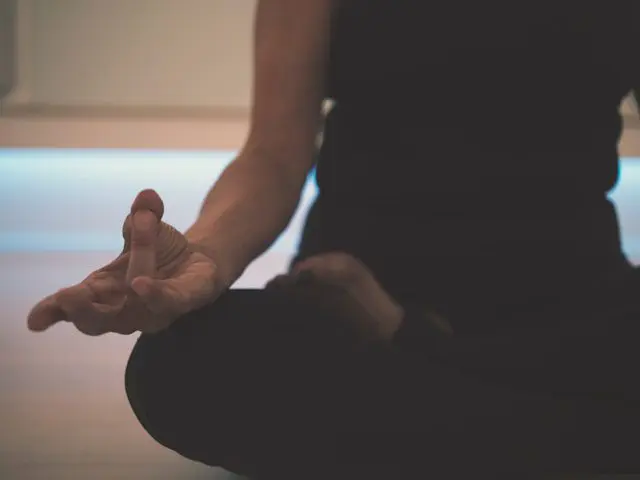Did you know that about 1 in 3 adults in the U.S. report getting less than the recommended seven hours of sleep? Poor sleep can lead to a host of health problems, from weight gain to decreased productivity. But there’s good news: implementing consistent nighttime routine ideas can help you achieve better sleep and improved well-being.

Why a Nighttime Routine is Important
Studies show that following a regular nighttime routine can lead to:
- Improved sleep quality and duration
- Reduced stress and anxiety levels
- Increased productivity and focus during the day
- Better mental and physical health
Here are 16 effective nighttime routine ideas to help you achieve better sleep and wellness:
1. Establish a Consistent Sleep Schedule
Going to bed and waking up at the same time every day helps regulate your body’s internal clock, making it easier to fall asleep and wake up naturally.
Tips for a consistent sleep schedule:
- Gradually adjust your bedtime and wake time by 15-30 minutes until you reach your desired schedule
- Stick to your schedule on weekends to avoid disrupting your circadian rhythm
- Use sleep tracking apps or devices to monitor your sleep patterns and progress
- The Oura Ring Gen3 Horizon excels in precision and discretion, making it an outstanding alternative to bulkier wrist-worn fitness trackers. Positioned on your finger, it provides more accurate health data by monitoring heart rate and temperature directly from the arteries, which are closer to the skin’s surface than those on the wrist. This smart ring is not only a sophisticated piece of jewelry that fits seamlessly into any social setting but also specializes in detailed sleep and recovery analytics, offering insights that are crucial for optimizing well-being.
2. Create a Relaxing Sleep Environment
A calming and comfortable bedroom promotes relaxation and helps you fall asleep faster.
Tips for a relaxing sleep environment:
- Invest in a comfortable mattress, pillows, and bedding
- Use blackout curtains or an eye mask to block out light
- Maintain a cool room temperature between 60-67°F (15-19°C)
3. Limit Screen Time Before Bed
The blue light emitted by electronic devices can interfere with melatonin production and disrupt sleep.
Tips to reduce screen time before bed:
- Set a cut-off time for electronic devices at least 1 hour before bedtime
- Use blue light blocking glasses or screen filters to minimize exposure
- Replace screen time with relaxing activities like reading or journaling
The Philips Hue Smart Light Starter Kit is a superb choice for enhancing sleep quality through its advanced lighting control. The LED bulbs allow you to minimize blue light exposure in the evenings, fostering a healthier sleep cycle. It connects to your wireless network and is voice-compatible with Alexa, Google Assistant, and Apple HomeKit.
Also consider using blue light blocking glasses, which can reduce eye strain and improve your overall sleep quality. Felix Gray’s glasses have proprietary blue light filtering with clear lenses, so there is no need to worry about looking out of place with amber lenses of the past.
4. Practice Relaxation Techniques
Incorporating relaxation techniques into your nighttime routine can help calm your mind and body.
Relaxation techniques to try:
- Deep breathing exercises
- Progressive muscle relaxation
- Guided imagery or visualization
- Mindfulness meditation
5. Take a Warm Bath or Shower
A warm bath or shower before bed can promote relaxation and help you fall asleep faster.
Tips for a relaxing bath or shower:
- Use Epsom salts or essential oils for added relaxation
- Keep the water temperature warm, not hot
- Limit bath or shower time to 20-30 minutes

6. Engage in Light Stretching or Yoga
Gentle stretching or yoga before bed can help release tension and promote relaxation.
Tips for bedtime stretching or yoga:
- Focus on gentle, slow movements
- Hold each stretch for 15-30 seconds
- Avoid intense or invigorating poses
7. Read a Book or Magazine
Reading a relaxing book or magazine can help you unwind and disconnect from screens before bed.
Tips for bedtime reading:
- Choose a book or magazine that isn’t too stimulating
- Read in a comfortable, dimly lit environment
- Opt for physical books or e-readers with adjustable backlighting
The Amazon Kindle Paperwhite enhances your nighttime routine by offering an adjustable warm light feature, which shifts the screen shade from white to amber, reducing blue light exposure and making it easier on your eyes before bed. Its 6.8” glare-free display mimics real paper, allowing you to comfortably read in any lighting condition, including dim bedtime environments. With up to 10 weeks of battery life, you can enjoy your evening reads without frequent recharges, and the waterproof design means you can unwind with a book even in the bath.
8. Practice Gratitude
Taking a few minutes to reflect on the things you’re grateful for can promote positive emotions and reduce stress.
Tips for practicing gratitude:
- Write down 3-5 things you’re grateful for each night
- Focus on both big and small moments of gratitude
- Share your gratitude with others
9. Journal or Brain Dump
Writing down your thoughts, worries, or to-do lists before bed can help clear your mind and reduce anxiety.
Tips for journaling or brain dumping:
- Use a dedicated journal or notebook
- Write freely without worrying about grammar or structure
- Focus on releasing thoughts, not solving problems
10. Prepare for the Next Day
Taking a few minutes to prepare for the next day can help reduce morning stress and promote a sense of control.
Tips for preparing for the next day:
- Lay out your clothes and accessories
- Pack your lunch and snacks
- Review your schedule and prioritize tasks

11. Create a Bedtime Ritual
Developing a consistent bedtime ritual can signal to your body and mind that it’s time to wind down and prepare for sleep.
Ideas for a bedtime ritual:
- Enjoy a cup of caffeine-free herbal tea
- Listen to calming music or nature sounds
12. Manage Noise Levels
Minimizing disruptive noises can help you fall asleep faster and stay asleep longer.
Tips for managing noise levels:
- Use a white noise machine or app to mask disruptive sounds
- Address any sources of chronic noise, such as a snoring partner or noisy appliances
- Wear earplugs designed for sleeping. The higher the NRR, the better.
- We’ve been using these for years and recommend Flents NRR 33.
13. Incorporate Aromatherapy
Certain scents can promote relaxation and improve sleep quality.
Aromatherapy tips:
- Use essential oils like lavender, chamomile, or ylang-ylang to help promote sleep
- Diffuse oils, apply to pulse points, or sprinkle on your pillow
- Choose high-quality, pure essential oils
14. Limit Fluid Intake Before Bed
Drinking too much fluid close to bedtime can lead to nighttime bathroom trips and disrupt sleep.
Tips for managing fluid intake:
- Stop drinking fluids 1-2 hours before bedtime
- Use the bathroom right before going to bed
- Limit diuretic beverages like caffeine and alcohol
15. Reflect and Set Intentions
Take a few minutes before bed to reflect on your day and set intentions for the next.
Tips for reflection and intention-setting:
- Write down 3 things you’re grateful for from the day
- Identify areas for improvement and growth
- Visualize your goals and aspirations for the future
16. Embrace a Minimalist Bedroom
A clutter-free bedroom promotes a sense of calm and relaxation. Keeping your sleep space tidy and organized can contribute to better sleep quality.
Bedroom Tips:
- Remove unnecessary items and clutter from your bedroom.
- Use calming colors and simple décor to create a serene atmosphere.
- Keep only sleep-related items in the bedroom to strengthen the mental association between your bedroom and sleep.
- See more about the benefits of decluttering.
Frequently Asked Questions
Q: How long before bed should I start my nighttime routine?
A: It’s recommended to begin your nighttime routine 30-60 minutes before your desired bedtime to allow your body and mind sufficient time to unwind and prepare for sleep.
Q: Can I customize my nighttime routine?
A: Absolutely! Everyone has different preferences and needs, so feel free to experiment with various nighttime routine ideas and find what works best for you.
Q: How long does it take to see the benefits of a consistent nighttime routine?
A: While some people may notice improvements in sleep quality and well-being within a few days, it typically takes 2-4 weeks of consistently following a nighttime routine to experience significant benefits.

Conclusion
Implementing a personalized and consistent nighttime routine can have a profound impact on your sleep quality, stress levels, and overall wellness. By experimenting with these 16 effective nighttime routine ideas and finding what works best for you, you’ll be well on your way to achieving better rest and vitality.
Start your journey to better sleep and wellness tonight by choosing 2-3 nighttime routine ideas to incorporate into your evening habits. Share your experiences and progress with us in the comments below!


Leave a Reply